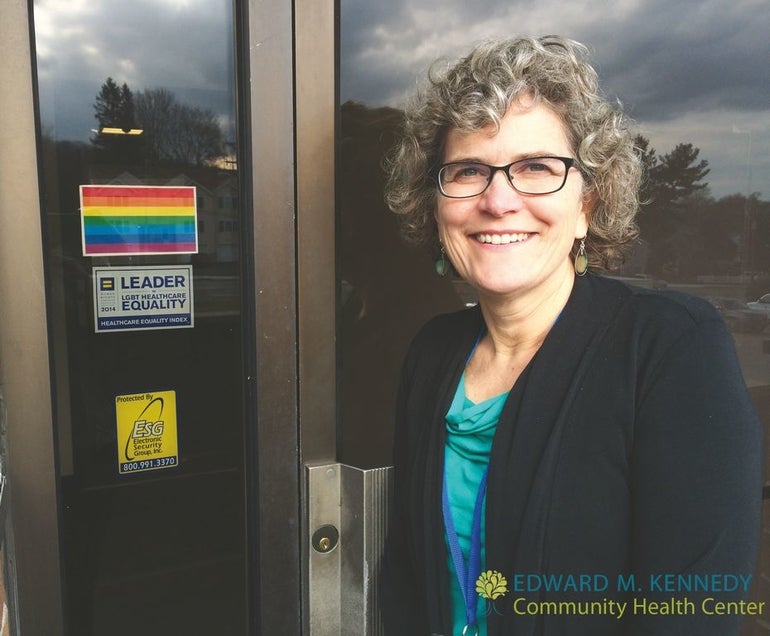As participation in an annual survey measuring LGBT equality in the U.S. healthcare system nearly doubled, the Human Rights Campaign (HRC) has singled out Worcester-based Edward M. Kennedy Community Health Center (CHC) as a leader on that front.
The Kennedy CHC, which is based in Worcester and has other locations in Framingham, Milford and Clinton, was the only Central Massachusetts provider to be recognized as an “equality leader” in the annual Healthcare Equality Index (HEI). The Index, launched in 2007, is participant-driven, and it was the second year that Kennedy CHC responded and was recognized as a leader, according to Sue Schlotterbeck, director of health equity at Kennedy CHC.
The organization was one of 427 providers nationwide to be named a leader in the 2014 index, published this week. The Human Rights Campaign said 507 organizations participated in the 2014 survey, compared to 289 in 2013. The majority — 427 — were named Equality Leaders. Last year, just 212 providers received that honor.
Leaders were determined based on four criteria, including the existence of non-discrimination policies; equal visitation policies; employment non-discrimination policies, and training in LGBT care.
Schlotterbeck said Kennedy CHC decided to participate in 2013 because there are a number of health disparities in the LGBT community, and part of the organization’s mission is to address such disparities. For LGBT patients, known disparities include an increased risk of suicide, sexually-transmitted diseases, and shortfalls in preventative care. Local data on such disparities hasn’t been measured, Schlotterbeck said, but given national trends, their occurrence is likely similar locally.
“We figure if it’s national, it’s probably here in Worcester, too,” Schlotterbeck said.
According to the HRC, the Index was designed to bring attention to the need for policies that create a welcoming environment for LGBT patients. And while significant progress has been made in the last couple of years, the report said there are still limitations, particularly among large hospitals, which fall short of “true inclusion,” despite the fact that LGBT-inclusive policies are now required for accreditation and mandated by federal regulation.
The HRC included both UMass Memorial Medical Center in Worcester and Milford Regional Medical Center as “non-respondent hospitals.” However, according to the data HRC collected on its own, each hospital had appropriate visitation policies in place but information on other criteria was not reported.

